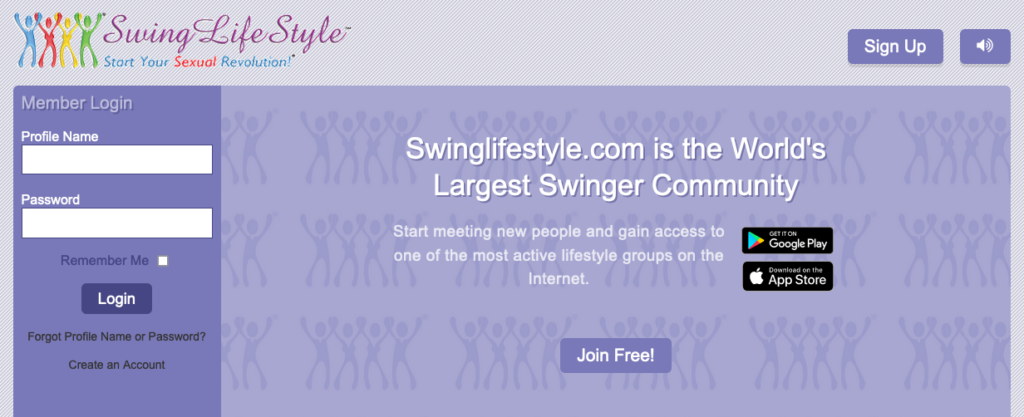
Introduction
The swing lifestyle, often referred to simply as “swinging,” is a dynamic and unconventional approach to relationships and sexuality that has garnered both curiosity and controversy. For those who embrace it, swinging is a way to explore their desires, enhance their relationships, and foster a sense of community with like-minded individuals. In this article, we will delve into the world of swinging, exploring its history, the reasons people choose it, the principles that guide it, and its impact on the participants’ lives.
Understanding the Swing Lifestyle
Swinging is a consensual, non-monogamous lifestyle where individuals or couples engage in sexual activities with others outside their primary partnership. Unlike cheating or infidelity, swinging emphasizes openness, honesty, and communication among all involved parties. Participants are often referred to as “swingers,” and they engage in a variety of sexual experiences, from soft swaps (kissing, touching, or oral sex) to full swaps (complete sexual exchange).

A Brief History of Swinging
The roots of swinging can be traced back to ancient times, with evidence of non-monogamous sexual practices found in various cultures throughout history. However, the modern swinging lifestyle as we know it emerged in the mid-20th century. During the sexual revolution of the 1960s, cultural attitudes towards sex and relationships began to shift, and this newfound openness led to the rise of swinging clubs and communities.
In the 1970s, swinging gained more visibility and acceptance with the publication of books like “The Joy of Sex” and “The Sensuous Woman,” which promoted exploration of one’s sexual desires and fantasies. Swingers clubs and parties began to flourish in major cities, providing a safe space for couples and individuals to explore their sexuality without judgment.
Read More: The ideal method to hire an escort
Reasons People Choose the Swing Lifestyle
- Exploration and Variety: One of the primary reasons people enter the swinging lifestyle is to explore their sexual desires and fantasies. Swinging allows individuals and couples to experience sexual encounters with others, providing a sense of novelty and variety in their sex lives.
- Enhanced Relationships: Surprisingly, many swingers report that their primary relationships become stronger through swinging. Open communication and trust are essential components of the swing lifestyle, and couples often find that the experience deepens their emotional connection and intimacy.
- Community and Support: Swinging communities are known for their strong sense of camaraderie and support. Participants often form close friendships and provide a network of like-minded individuals who share similar values and interests.
- Rejection of Traditional Monogamy: Some swingers simply do not resonate with the concept of traditional monogamy. They believe that love and commitment can exist outside of exclusivity and that sexual exploration can be a natural part of human nature.
Principles of the Swing Lifestyle
- Consent: Consent is the cornerstone of the swinging lifestyle. All activities must be entirely consensual, and communication about boundaries and desires is paramount. Swingers often have explicit agreements in place regarding what is permissible and what is off-limits.
- Honesty and Transparency: Swingers place a high value on honesty and open communication. They are encouraged to be forthright with their partners about their desires, experiences, and any concerns that may arise.
- Safe Sex: Practicing safe sex is a fundamental rule of swinging. Condoms and other forms of protection are typically used to minimize the risk of sexually transmitted infections.
- Respect and Discretion: Swingers respect the privacy and confidentiality of others in the community. What happens in the swing lifestyle stays within the community, and discretion is essential to maintaining trust and integrity.
Impact on Participants’ Lives
Swinging has a unique impact on the lives of those who choose to participate in it:
- Enhanced Communication: Swinging requires open and honest communication, which often spills over into other aspects of participants’ lives. Many swingers report improved communication skills and a deeper connection with their partners.
- Increased Self-Awareness: Exploring one’s desires and boundaries in a non-judgmental environment can lead to increased self-awareness and self-acceptance. Swinging encourages individuals to be in touch with their own desires and needs.
- Stronger Relationships: Contrary to popular belief, many swinging couples report that their primary relationships become more secure and fulfilling. Trust and intimacy are cultivated, leading to healthier partnerships.
- Community and Support: Swingers often find a sense of belonging within their local and online communities. They provide emotional support, friendship, and a non-judgmental space where participants can be themselves.

Challenges and Controversies
While swinging can be a fulfilling and enriching lifestyle for many, it is not without its challenges and controversies. Some of the common concerns and criticisms include:
- Jealousy and Insecurity: Jealousy can still arise in swinging relationships, even with open communication and consent. Dealing with these emotions requires strong communication skills and self-awareness.
- Stigma and Misunderstanding: Swinging is often misunderstood and stigmatized by society. Participants may face judgment or discrimination from those who do not understand or accept their lifestyle choice.
- Emotional Risks: Engaging in sexual activities with others can carry emotional risks, especially if boundaries are not well-defined or if there are misunderstandings within the community.
Our Partners: IAmNaughty
Conclusion
The swing lifestyle is a complex and multifaceted world, characterized by consensual non-monogamy, open communication, and a strong sense of community. For those who embrace it, swinging offers an opportunity to explore desires, strengthen relationships, and foster a supportive network of like-minded individuals. While it may not be for everyone, the swing lifestyle challenges conventional norms and invites individuals and couples to question and explore their own beliefs and desires about love and sexuality. Ultimately, the key to success in swinging lies in trust, communication, and a commitment to shared values and principles
Post a Review
Reviews
No reviews yet.